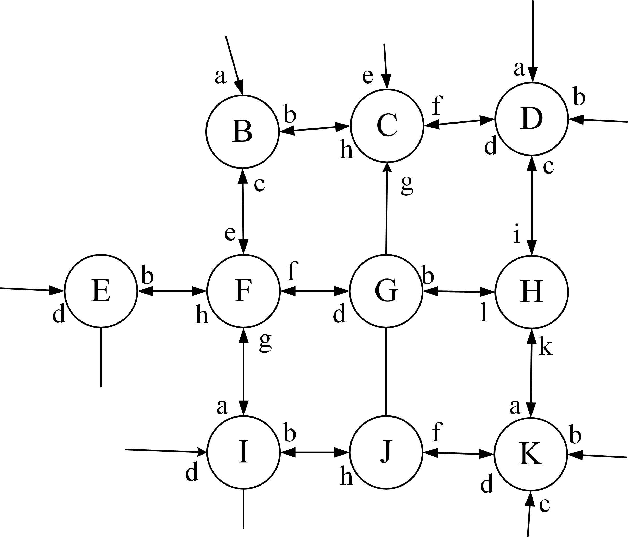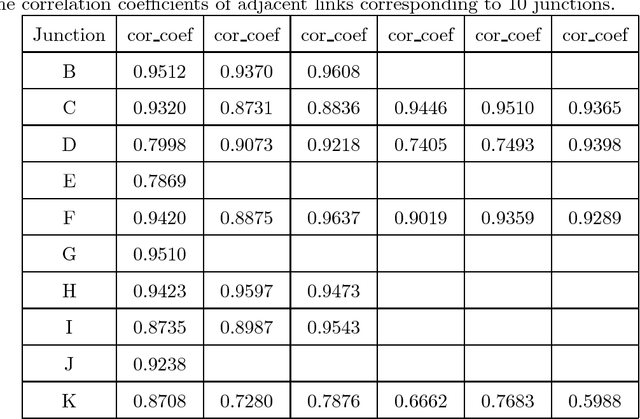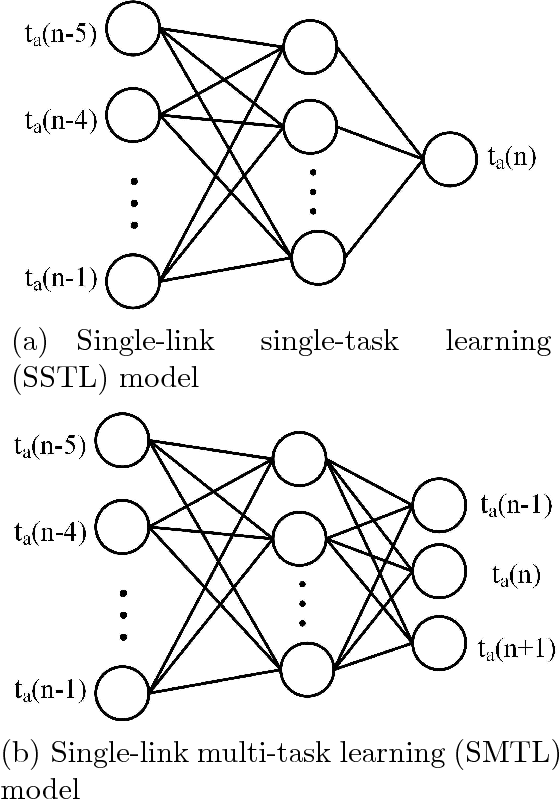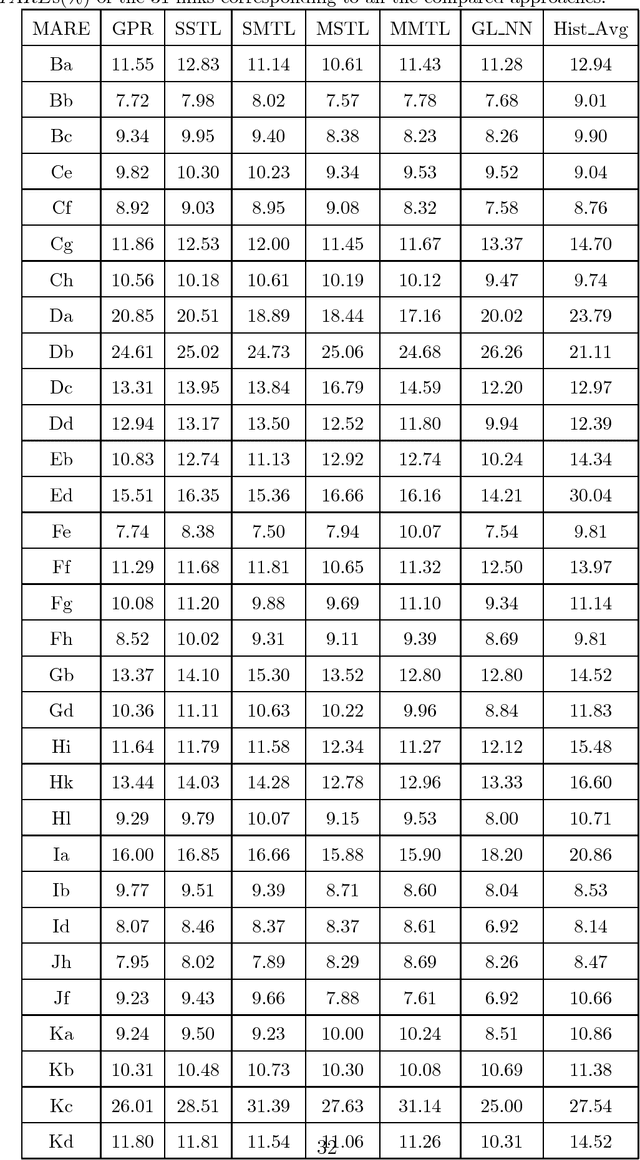Network-Scale Traffic Modeling and Forecasting with Graphical Lasso and Neural Networks
Paper and Code
Dec 25, 2017



Traffic flow forecasting, especially the short-term case, is an important topic in intelligent transportation systems (ITS). This paper does a lot of research on network-scale modeling and forecasting of short-term traffic flows. Firstly, we propose the concepts of single-link and multi-link models of traffic flow forecasting. Secondly, we construct four prediction models by combining the two models with single-task learning and multi-task learning. The combination of the multi-link model and multi-task learning not only improves the experimental efficiency but also the prediction accuracy. Moreover, a new multi-link single-task approach that combines graphical lasso (GL) with neural network (NN) is proposed. GL provides a general methodology for solving problems involving lots of variables. Using L1 regularization, GL builds a sparse graphical model making use of the sparse inverse covariance matrix. In addition, Gaussian process regression (GPR) is a classic regression algorithm in Bayesian machine learning. Although there is wide research on GPR, there are few applications of GPR in traffic flow forecasting. In this paper, we apply GPR to traffic flow forecasting and show its potential. Through sufficient experiments, we compare all of the proposed approaches and make an overall assessment at last.
 Add to Chrome
Add to Chrome Add to Firefox
Add to Firefox Add to Edge
Add to Edge